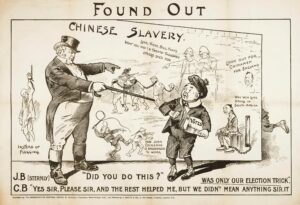Protecting and Enhancing Public Access to Codes Act of 2025
This bill was introduced on June 23, 2025, and referred to the Committee on the Judiciary.
The Protecting and Enhancing Public Access to Codes Act of 2025 (H.R. 4072 IH) aims to balance the goals of furthering the creation of standards and ensuring public access to standards that are incorporated by reference into law or regulation.
Section 1: Short Title
This Act may be cited as the ‘Protecting and Enhancing Public Access to Codes Act of 2025’ or the ‘ProCodes Act’.
Section 2: Findings
-
Congress, the executive branch, and State and local governments have long recognized that the people of the United States benefit greatly from the work of private standards development organizations with expertise in highly specialized areas.
-
The organizations described in paragraph (1) create technical standards and voluntary consensus standards through a process requiring openness, balance, consensus, and due process to ensure all interested parties have an opportunity to participate in standards development.
-
The standards that result from the process described in paragraph (2) are used by private industry, academia, the Federal Government, and State and local governments that incorporate those standards by reference into laws and regulations.
-
The standards described in paragraph (3) further innovation, commerce, and public safety, all without cost to governments or taxpayers because standards development organizations fund the process described in paragraph (2) through the sale and licensing of their standards.
-
Congress and the executive branch have repeatedly declared that, wherever possible, governments should rely on voluntary consensus standards.
-
Circular A–119 of the Office of Management and Budget entitled ‘Federal Participation in the Development and Use of Voluntary Consensus Standards and in Conformity Assessment Activities’, issued in revised form on January 27, 2016, recognizes the benefits of voluntary consensus standards and incorporation by reference.
-
Federal agencies have relied extensively on the incorporation by reference system to leverage the value of technical standards and voluntary consensus standards for the benefit of the public, resulting in more than 23,000 sections in the Code of Federal Regulations that incorporate by reference technical and voluntary consensus standards.
-
State and local governments have also recognized that technical standards and voluntary consensus standards are critical to protecting public health and safety, which has resulted in many such governments—
-
incorporating those standards by reference into their laws and regulations;
-
entering into license agreements with standards development organizations to use the standards created by those organizations.
-
-
Standards development organizations rely on copyright protection to generate the revenues necessary to fund the voluntary consensus process and to continue creating and updating these important standards.
-
The term ‘standard’ means a technical standard, as that term is defined in section 12(d) of the National Technology Transfer and Advancement Act of 1998 (15 U.S.C. 272 note); or a voluntary consensus standard, as that term is used for the purposes of Circular A–119.
-
The term ‘standards development organization’ means a holder of a copyright under this title that plans, develops, establishes, or coordinates voluntary consensus standards using procedures that incorporate the attributes of openness, balance of interests, due process, an appeals process, and consensus in a manner consistent with the requirements of Circular A–119.
-
The term ‘publicly accessible online’, with respect to material, means that the material is displayed for review in a readily accessible manner on a public website that conforms with the accessibility requirements of section 508 of the Rehabilitation Act of 1973 (29 U.S.C. 794d), including the regulations implementing that section as set forth in part 1194 of title 36, Code of Federal Regulations, or any successor regulation.
-
If a user is required to create an account or agree to the terms of service of a website or organization in order to access material online, that requirement shall not be construed to render the material not publicly accessible online for the purposes of this subsection, if—
-
there is no monetary cost to the user to access that material;
-
no personally identifiable information collected pursuant to such a requirement is used without the affirmative and express consent of the user.
-
Section 123: Works Incorporated by Reference into Law or Regulation
A standard to which copyright protection subsists under section 102(a) at the time of its fixation shall retain such protection, notwithstanding that the standard is incorporated by reference, if the standards development organization within a reasonable period of time after obtaining actual or constructive notice that the standard has been incorporated by reference makes all portions of the standard so incorporated publicly accessible online at no monetary cost and in a format that includes a searchable table of contents and index, or equivalent aids to facilitate the location of specific content.
In any proceeding in which a party asserts that a standards development organization has failed to comply with the requirements under subsection (b) for retaining copyright protection with respect to a standard, the burden of proof shall be on the party making that assertion to prove that the standards development organization has failed to comply with those requirements.
The table of sections for chapter 1 of title 17, United States Code, is amended by adding at the end the following:
123. Works incorporated by reference into law.




